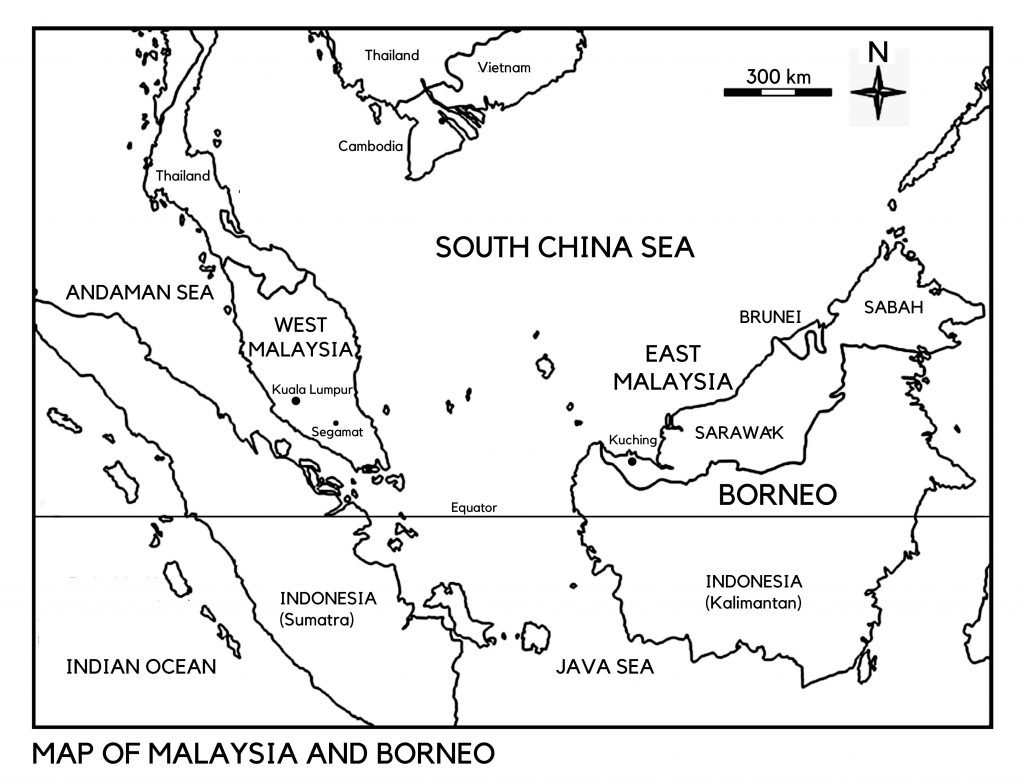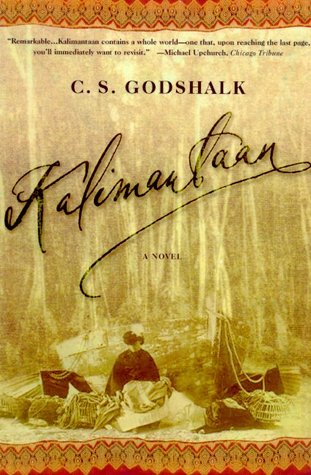A warm welcome to my guest, the legendary Bill Colegrave,
who has collected and been inspired by travel books for more than four decades. He was the owner and publisher of the Cadogan Guides travel series.
And now over to Bill…
The unforeseen complications of a one-night stand
are the foundations of this tale and the adventure that ensues. Benjie, a Chinese Malaysian Doctor is quickly diverted by his new assistant, a tattooed Iban, an indigenous Bornean; once hooked, he remains on the line. The more he discovers of her history, the deeper he becomes embroiled.
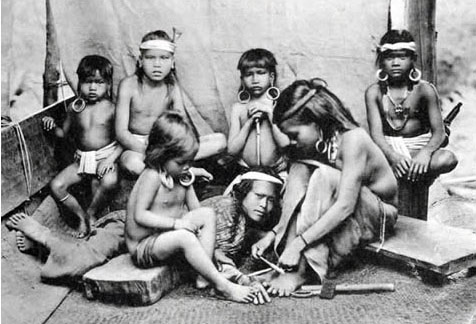
Debut novelist, Ivy Ngeow is Malaysian and international and she uses all her multicultural skills to explore the interaction of her character cast of Chinese, Malay, Scottish and Iban. The latter are the catalysts for the drama.
“A man or a woman without tattoos is invisible to the gods.” – Iban proverb
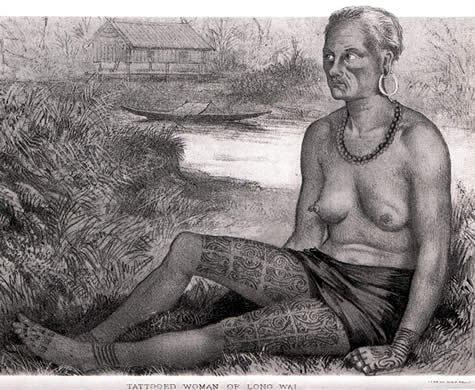
Everyone has heard of Borneo, but most can’t place it on the map.
That is because Borneo is the name of an island, which is not a country; 75% of it is the Indonesian province of Kalimantan, the rest is the Malaysian outposts of Sabah and Sarawak plus the tiny but powerfully oil-rich Kingdom of Brunei. The Borneo of Cry is Sarawak, the home of the Iban.
The story engaged my attention but I was also learning about the Iban,
and learning to admire the Iban. Marriage, we learn, should be considered in practical terms:
“Every boy should look to marry a girl that is top class at weaving…..Boys want girls that are good at weaving, because it is a tough, tough life in the jungle. The girls, they weave to make clothes for war and for every day. They weave pua and the blankets make you dream well. In Iban, dreams are the most important gift from the Gods.”
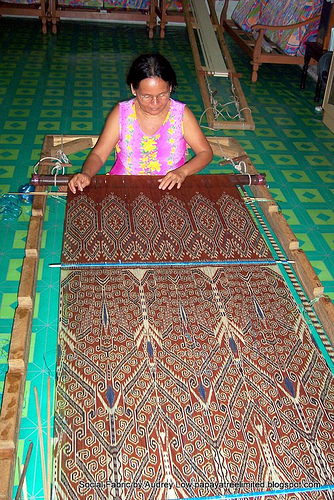
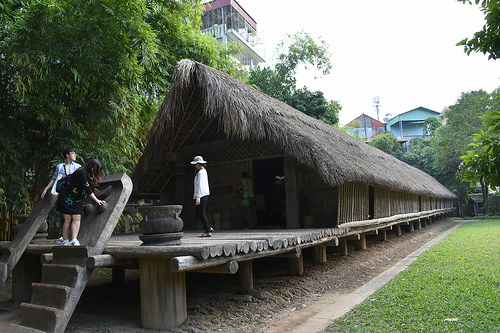
Central to the tale are the two Iban boys, Minos and Watan, who are taken under the wing of a English pastor, who has not understood that the 19th century ended a few years ago and that he is not helping anyone by trying to convert Iban to Christianity. But what he can offer is attractive to the eager Iban. Minos complains that there is no TV.
“Ingland says no. If plentymoney says No, it means No. But Pastor says Yes. Someone from the church give a TV. It is only the size of a chicken.”
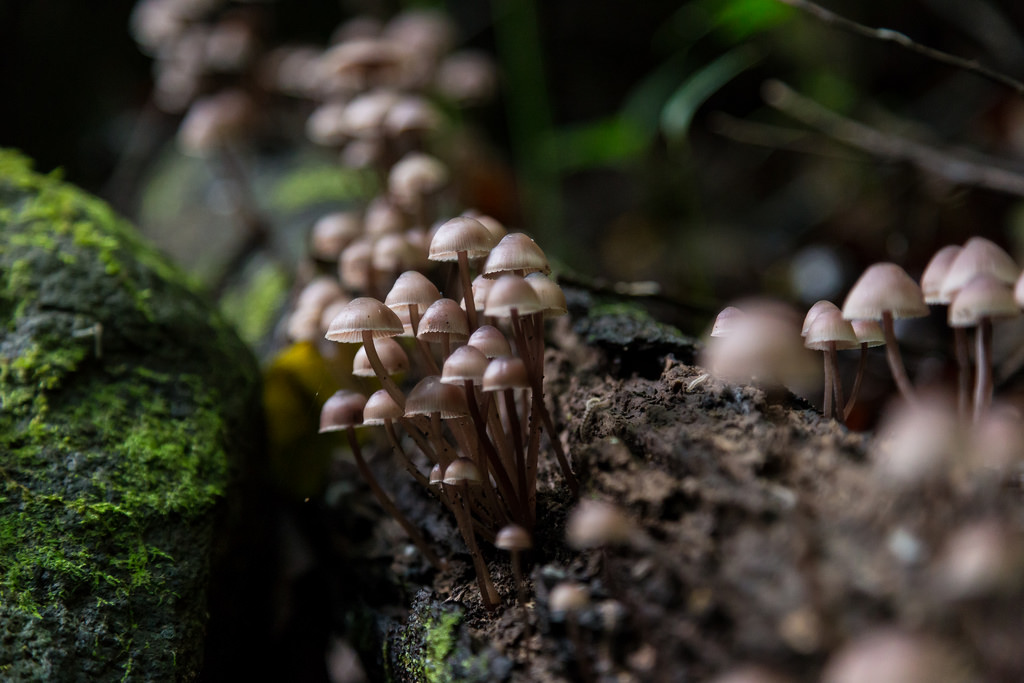 I hope I remember to use that splendid simile when I am next buying a TV. Let me also remember Minos’ advice about mushroom gathering:
I hope I remember to use that splendid simile when I am next buying a TV. Let me also remember Minos’ advice about mushroom gathering:
“….if all rotten and covered in worms, means OK to eat. If fresh and untouched, means poisonous.”

Cry of the Flying Rhino is charming as well as compelling
as a story, partly because the author creates her own moral code, as a result of which almost all crimes committed by her characters can be forgiven, so long as they can be held to be avenging a greater wrong.
The charm of the book and its insights into the ways of the jungle people of Borneo have drawn me to the island.
When I get there I will be thanking Ivy and two other writers:
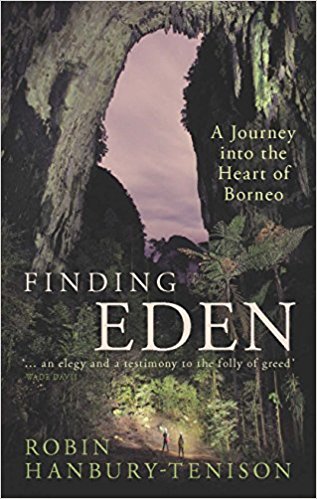
- My friend Robin Hanbury Tenison, whose Finding Eden – A Journey into the Heart of Borneo, has just been published. It tells the story of his time leading the Royal Geographical Society expedition to the same area in 1977 and starts with his chance meeting with Nayapun, a Penan tribesman:
“The Penan have a quality of stillness….They melt into the shadows and that is their life”.
2. and the American, CS Godshalk, whose novel Kalimantaan, brought back to vivid but fictional life the time of Rajah Brooke, the Briton who became an effective Rajah of Sarawak in the mid 19th Century.
2018 All Rights Reserved © Bill Colegrave
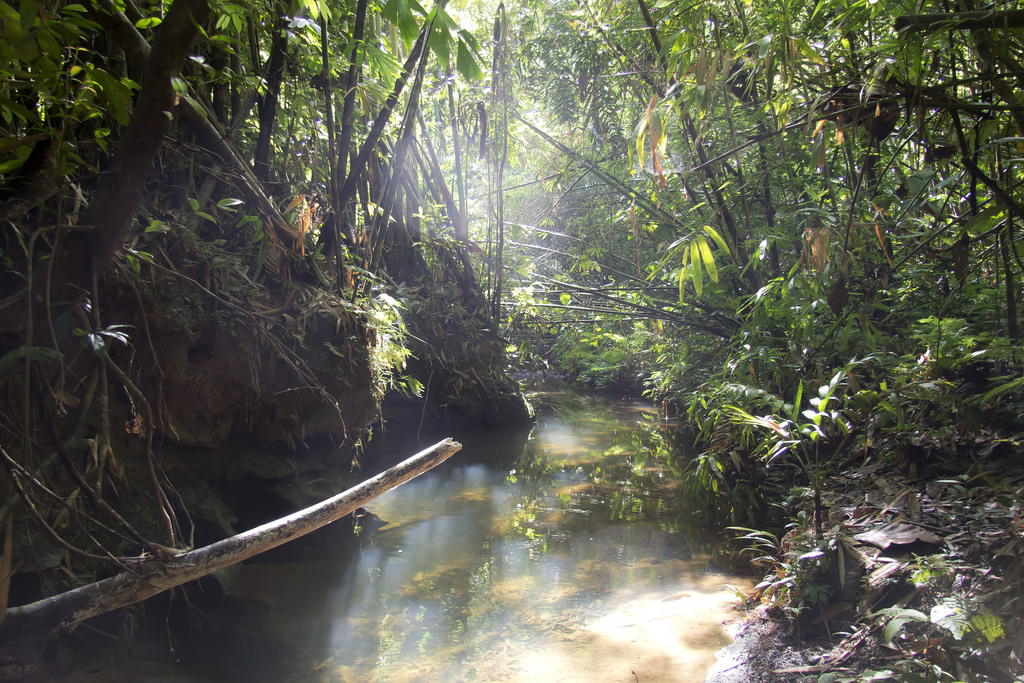
“When we affect to condemn savages, we should remember that by doing so we asperse our own progenitors; for they were savages also. Who can swear that among the naked British barbarians sent to Rome to be stared at more than 1500 years ago, the ancestor of Bacon might not have been found?–Why, among the very Thugs of India, or the bloody Dyaks of Borneo, exists the germ of all that is intellectually elevated and grand. We are all of us–Anglo-Saxons, Dyaks and Indians–sprung from one head and made in one image.” – Herman Melville
Have you been to Borneo and have you met an Iban before? If you have enjoyed this blog post, please share, join my mailing list or email me with your comments and feedback. We would love to hear from you.
Ivy Ngeow lives in London. Cry of the Flying Rhino is a debut award-winning novel set in Malaysia and Borneo. Her second novel Heart of Glass is published by Unbound in 2018. Find me at www.writengeow.com, tweet me @ivyngeow, or write to me here: ivy_ngeow at yahoo dot com
Bill Colegrave is a travel writer and explorer. He was publisher of Cadogan Guides, which he bought in 1989, and also a Director of Everyman’s Library. His book Halfway House to Heaven (Benefactum, 2011) tells the story of his expedition to find the source of the River Oxus in the Wakhan Corridor and Pamir Mountains of Afghanistan. He is also co-creator of Not The Times, a parody of The Times during its year-long strike. He has an extensive travel book library and has travelled to 110 countries and counting. He has three grown children and one grandchild, and lives in London. Scraps of Wool was published by Unbound on 16 November 2017. Write to him here: scrapsofwool at gmail dot com
PHOTO CREDITS:
Map of Borneo: drawn by © Ivy Ngeow 2018 All Rights Reserved
Sarawak weaver: photo credit: papayatreelimited 7 Nancy Ngali at her loom, Rumah Garie, Sarawak via photopin (license)
Rainforest mushrooms: photo credit: The eclectic Oneironaut dry rainforests via photopin (license)
Desperate prayer: photo credit: mathieujarryphoto desperate.prayer via photopin (license)
Sarawak rainforest: photo credit: LukePricePhotography Jungle. Sarawak, Borneo. Malaysia via photopin (license)
